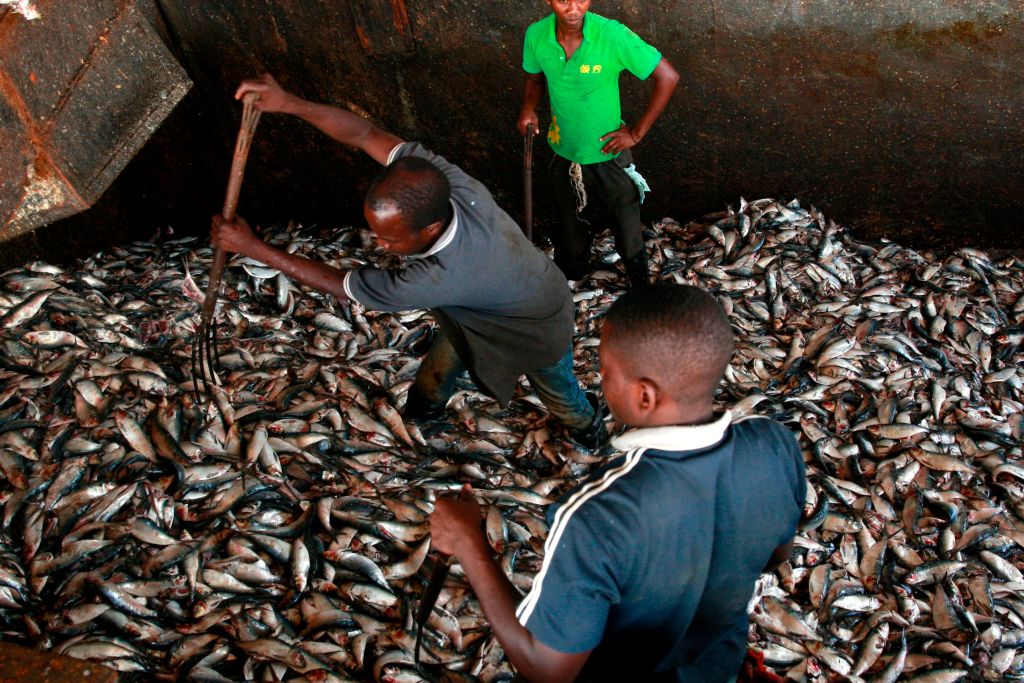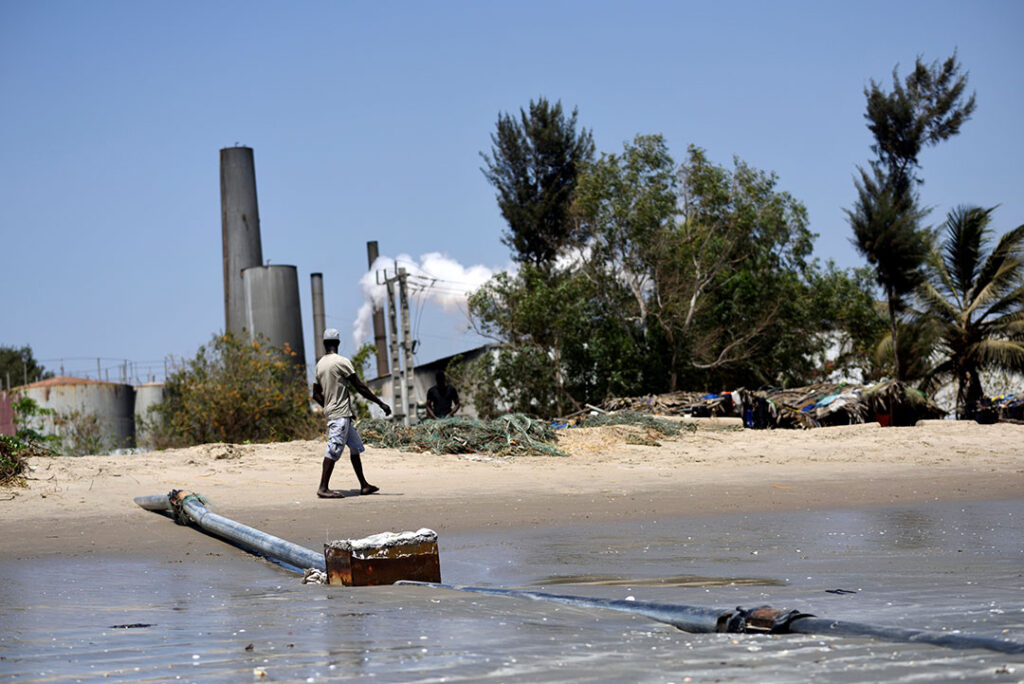ADF STAFF
Anger at the harm caused by fishmeal factories in The Gambia turned violent in March when protesters burned down a police station in Sanyang and torched the Chinese-owned Nessim Fishing and Fish Processing Co. fishmeal factory.
Protesters were angry about the murder of a Gambian man, Gibril Ceesay, who was stabbed by a fish factory worker, police said. Protesters turned their frustration toward the factory, which they blame for polluting the environment and attracting foreign industrial trawlers to fish illegally in local waters, where fish stocks are in rapid decline.
Police charged 22 young people with crimes related to the fires.
“We have suffered enough from the activities of the factory and we now kindly seek immediate international intervention,” Yusupha Jobe, chairman of the Sanyang Youths Development Taskforce Committee, said in a report by Gambian newspaper The Standard. “Both our lives and livelihoods are threatened and as such natural resource-related conflicts will persist.”

Protester Edward Jatta told Gambian newspaper The Voice that locals demand the immediate closure of all fishmeal factories “because these are the root causes of all the recent problems we are encountering in Sanyang.”
Fishmeal factories are a sore subject throughout West Africa, where more than 50 such plants operate in The Gambia, Guinea-Bissau, Mauritania and Senegal.
Many areas around the factories become so polluted that tourism grinds to a halt. And the species that fuel the factories’ production already are overfished, leading to unemployment and food insecurity. One Gambian plant processes more than 7,500 tons of fish a year, mostly bonga, a type of shad. About 200,000 Gambians rely on fishing and related activities for income.
Two decades ago, bonga was so plentiful that it sometimes was given away. Fish market worker Abdul Sisai told Kenya’s Daily Nation newspaper that the overfished species now costs more than locals can afford. Half of the Gambian population lives below the international poverty line, and fish accounts for half the country’s animal-protein needs.
Environmental Concerns
Much of the fishmeal produced in The Gambia is exported to China, where the powdered product is used to feed pigs and shrimp.
The government temporarily closed the Nessim factory in Sanyang in 2018 after authorities found that it was operating without a wastewater treatment plant and was discharging waste directly into the sea, according to a report on thefishsite.com.
In 2019, residents in Gunjur sued Golden Lead, one of three Chinese-owned fishmeal factories that operate in the city, over environmental concerns.
After the factory opened in 2016, residents say dead whales, turtles, dolphins, eels and rays washed ashore. A year later, a nearby lagoon changed color, and its birds and fish started dying, driving away tourists. The Gambian National Environment Agency ordered the factory’s waste pipe removed, but the factory later installed a new one at the center of Gunjur Beach, Quartz Africa reported.
The factory had promised good jobs and promoted itself as a boon to the local economy. Residents say that hasn’t happened.
Lives Destroyed
At the Golden Lead plant, only about a dozen young men work the floor at a time. They race from the shore to the plant carrying bonga and sardinella in baskets on their heads. Dawda Jack Jabang watched the workers recently as they toiled in the heat.
“This is not the employment we want,” Jabang said in a story published by the Kenyan newspaper Daily Nation.
Jabang, 57, owns the nearby Treehouse Lodge, a hotel and restaurant left deserted, he said, because of the noxious odor that sometimes wafts over from the factory, prompting restaurant customers to leave their meals uneaten.
“I spent two good years working on this place,” Jabang told the newspaper. “And overnight Golden Lead destroyed my life.”

